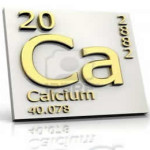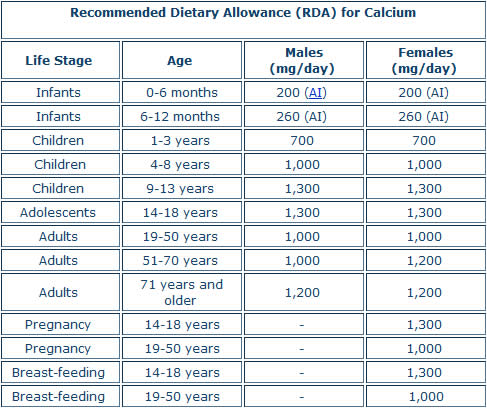Can Too Much Calcium Cause High Blood Pressure?
It’s undeniable that most cases of high blood pressure (hypertension) are usually closely associated with dietary factors. Furthermore, other lifestyles factors such as stress, anxiety, and the level of physical activity (whether you have poor or good exercise) also have a significant effect. Your risk of hypertension increases if you have poor in dietary potassium and vitamin D. How about with calcium? Does it also have an effect? Does too much /too low consumption of it help prevent hypertension or vice versa?
 The first thing that comes into your mind when talking about calcium maybe for the health of your bones!
The first thing that comes into your mind when talking about calcium maybe for the health of your bones!
Well, there is nothing wrong with this perception since to keep your bones strong, your body needs to get plenty of dietary calcium. Poor dietary Ca is linked with the high risk of osteoporosis.
However, the cells of your bones are not the only one that needs this mineral. It is also required by almost all cells of your body – though they need it in small amounts ‘not as much as the bone’s cells need it’.
Therefore getting plenty of this mineral is not only important to prevent osteoporosis, but also important to lower your risk of other serious health problems such as colorectal cancer, kidneys stone, lead toxicity, and preeclampsia (a kind of serious pregnancy complication).
But although this mineral is the most plentiful mineral for your body, you should consume it in the range of the recommended dietary allowance (RDA) – don’t go ‘too much’ or ‘too low’!
The role of calcium for your blood pressure may not be as important as potassium (potassium can help control the amounts of sodium or salt in the cells of the body), but it can affect the elasticity of blood vessels (the place where the blood flow from the heart to the body cells).
According to some studies, Ca can be a special agent and moderator in relaxation and constriction for blood vessels.
Why is it important to have elastic blood vessels? Actually, it is perfectly normal for blood vessels to get larger and smaller to respond what your body needs.
However overtime, your chance of getting narrowing and hardening blood vessels increases as you age. But there are plenty options you can do to prevent it. And fortunately, most of these options are with diet and lifestyle approaches. One of them is by getting plenty of dietary calcium.
Furthermore, lack of dietary calcium may have contribution to increase the vascular resistance, according to a journal published in the US National Library of Medicine – the National Institutes of Health.
Vascular resistance is the resistance of blood vessels that affect the flow of blood pumped by the heart. Overall, higher vascular resistance means higher force of the blood against the artery walls which means higher blood pressure.
In addition, when you check your blood pressure (BP) with a sphygmomanometer, you will find 2 different numbers given in mm Hg; the top (systolic) and bottom (diastolic) numbers of your BP.
Systolic pressure is your BP when your heart works /contracting. On the other hand, diastolic pressure is your BP when your heart at rest /between beats.
While this mineral may help improve vascular resistance – as noted before, but this doesn’t mean you can eat and get it higher than the recommended dietary allowance.
Excessive Ca consumption may become counterproductive to improve your blood pressure. Even this may increase your risk of cardiovascular problems (one of the scariest complications from high blood pressure).
The reason is due to the excessive deposits of Ca in the blood stream can contribute to stiffening of the blood vessels and can be a part of clogging-plague on the walls of arteries. This plague can be potential to lead to a condition called atherosclerosis (a condition that can cause a clogged artery).
However, this issue is not clear yet. More studies are required – there is still no clearly scientific evidence to confirm the direct link between too much calcium and cardiovascular diseases.
So both too low and too much dietary calcium can probably give bad impact on your BP. Therefore, it’s important to get this mineral appropriately and make sure the amounts of your dietary calcium meet to your body needs.
How many calcium you should get per day from your diet? The answer is dependent on your age and gender.
The following is a table (source: Linus Pauling Institute) about the common recommended dietary allowance for calcium:

Getting plenty of dietary calcium is important to help reduce the risk of developing kidneys stone problem.
But either too much or too low consumption of this mineral can be counterproductive, Kidneys stone can probably occur if you get too much or too low calcium from your diet in long term.



